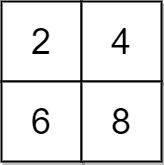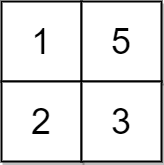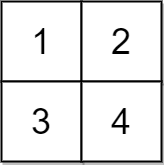There are n people in a line queuing to buy tickets, where the 0th person is at the front of the line and the (n - 1)th person is at the back of the line.
You are given a 0-indexed integer array tickets of length n where the number of tickets that the ith person would like to buy is tickets[i].
Each person takes exactly 1 second to buy a ticket. A person can only buy 1 ticket at a time and has to go back to the end of the line (which happens instantaneously) in order to buy more tickets. If a person does not have any tickets left to buy, the person will leave the line.
Return the time taken for the person at position k(0-indexed) to finish buying tickets.
Example 1:
Input: tickets = [2,3,2], k = 2 Output: 6 Explanation: - In the first pass, everyone in the line buys a ticket and the line becomes [1, 2, 1]. - In the second pass, everyone in the line buys a ticket and the line becomes [0, 1, 0]. The person at position 2 has successfully bought 2 tickets and it took 3 + 3 = 6 seconds.
Example 2:
Input: tickets = [5,1,1,1], k = 0 Output: 8 Explanation: - In the first pass, everyone in the line buys a ticket and the line becomes [4, 0, 0, 0]. - In the next 4 passes, only the person in position 0 is buying tickets. The person at position 0 has successfully bought 5 tickets and it took 4 + 1 + 1 + 1 + 1 = 8 seconds.
Constraints:
n == tickets.length1 <= n <= 1001 <= tickets[i] <= 1000 <= k < n
Solution 1: Simulation
Time complexity: O(n * tickets[k])
Space complexity: O(n) / O(1)
C++
|
1 2 3 4 5 6 7 8 9 10 11 12 13 14 15 16 17 18 |
// Author: huahua class Solution { public: int timeRequiredToBuy(vector<int>& tickets, int k) { const int n = tickets.size(); queue<pair<int, int>> q; for (int i = 0; i < n; ++i) q.emplace(i, tickets[i]); int ans = 0; while (!q.empty()) { ++ans; auto [i, t] = q.front(); q.pop(); if (--t == 0 && k == i) return ans; if (t) q.emplace(i, t); } return -1; } }; |
Solution 2: Math
Each person before k will have tickets[k] rounds, each person after k will have tickets[k] – 1 rounds.
Time complexity: O(n)
Space complexity: O(1)
C++
|
1 2 3 4 5 6 7 8 9 10 |
// Author: huahua class Solution { public: int timeRequiredToBuy(vector<int>& tickets, int k) { int ans = 0; for (int i = 0; i < tickets.size(); ++i) ans += min(tickets[i], tickets[k] - (i > k)); return ans; } }; |


